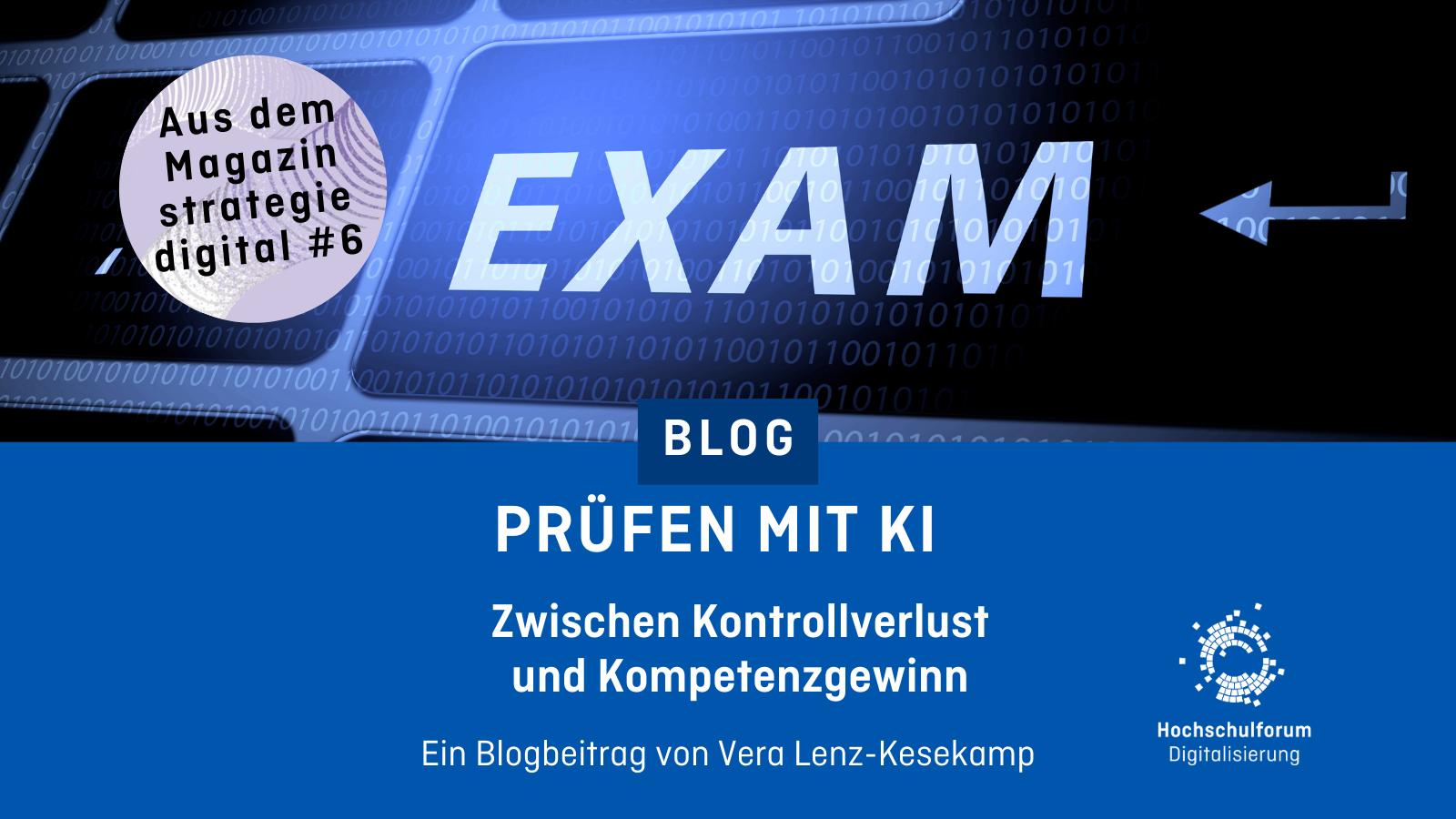Editor’s Pick: 5 Must-see Keynotes in English at the University:Future Festival 2024
Editor’s Pick: 5 Must-see Keynotes in English at the University:Future Festival 2024
29.05.24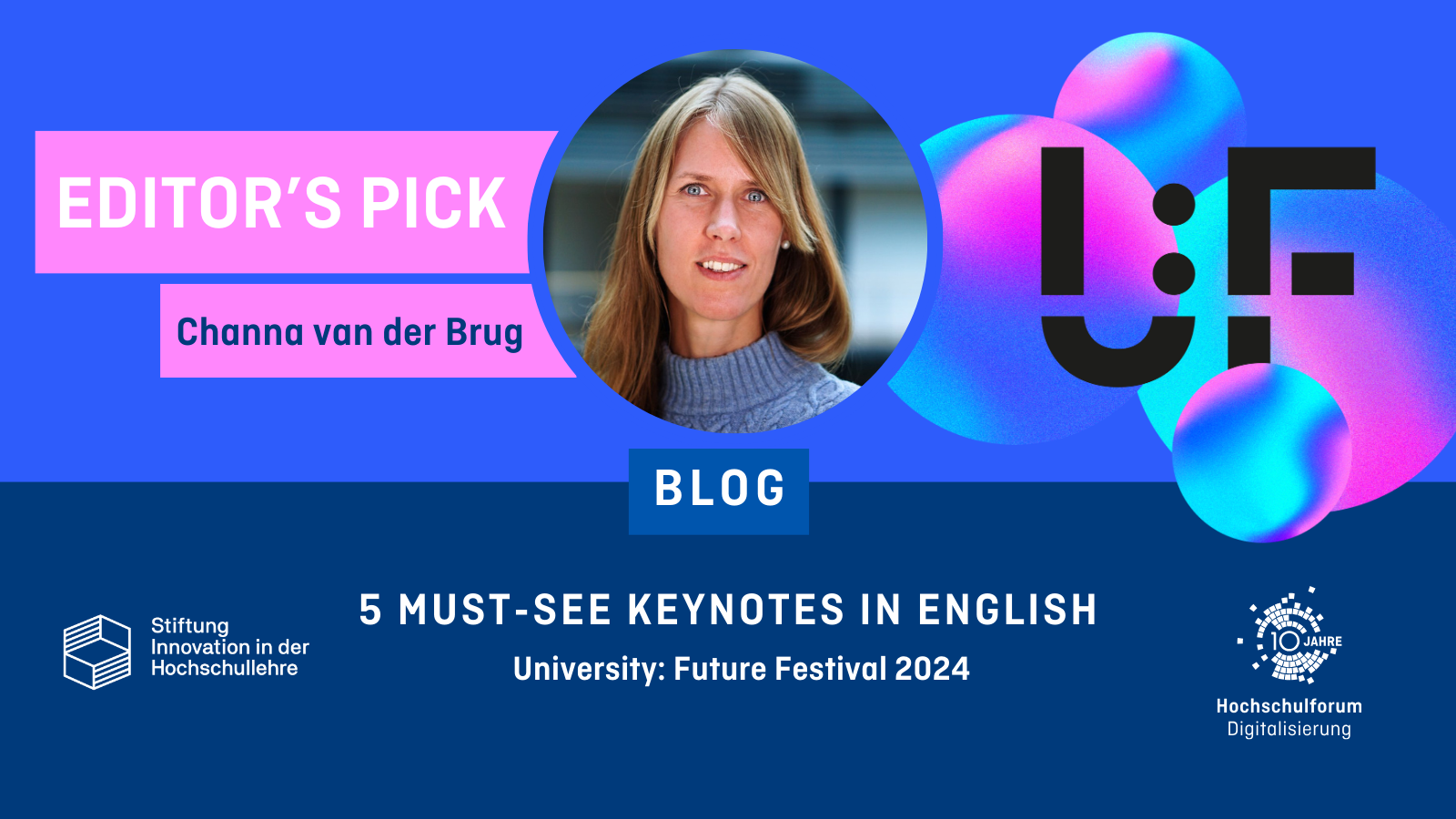
My name is Channa van der Brug, Programme Manager International I EU at HFD for Stifterverband. I have many years of international experience in the higher education sector, working at Dutch and Danish universities and for academic publishers in the Nordic countries. I find it fascinating how technological change happens and who makes it happen. Digitalisation is shaping the future of education and as a sector we need to think, navigate and act together to steer the direction we are heading.
The University:Future Festival (U:FF) provides such an opportunity for critical reflection, sharing of best practice and key insights into what’s working at the cutting edge by bringing together educators, staff and students, as well as policy makers from across Germany and Europe. To broaden your perspective, here are my 5 must-see keynotes in English from the festival’s stellar line-up:
In an increasingly technology-driven world, how can we ensure accessible, high-quality digital learning for all? Georgi Dimitrov, Head of Unit for Digital Education at the European Commission, will focus on how to improve education across the EU and make it fit for the digital age. He will present the latest progress and plans for the Digital Education Action Plan 2021-2027. There’s a huge need to increase educators’ digital skills, raise the discussion around European values, leave no student behind, and provide equal access to broadband internet across the EU. I am sure he will provide an insider’s view of the initiatives that are strengthening digital education and how the Commission is taking action and supporting Member States in this regard.The Digital Education Action Plan 2021 – 2027: lessons learnt and the way ahead takes place June 5, 17:00 – 17:30.
Are higher education sectors around the world “bubble economies” on the verge of bursting? Is the traditional role of academics/academia becoming obsolete? Eminent philosopher Steve Fuller, founder of the Social Epistemology Research Programme at the University of Warwick, raises the provocative question of whether homo academicus is an endangered species. He’ll explore how teaching and research have become increasingly disconnected, with the potential downstream effects of AI and social media threatening to disrupt the foundations of academia.I’m equally dreading his critical analysis of the value of higher education – and looking forward to the solutions Fuller will no doubt offer. As he does in his recent book Back to the University’s Future – The Second Coming of Humboldt. I hope he will offer a new vision for our place in this ‘post-truth’ era. Is Homo Academicus An Endangered Species? takes place on June 5, 11:40 – 12:10.
Derk Loorbach, a world-renowned scholar of socio-economic transition at Drift and Erasmus University, delivers a wake-up call about the complicity of the academic world in the creation of our current crises of climate change, over-consumption and more. But he also offers inspiring examples of a new ‘organic’ model of knowledge, in which universities engage as partners with communities to explore together the kind of just and sustainable future we want. How this transition story ends is ultimately up to us. So I look forward to hearing more about the story Loorbach will provide, and the practical tools and examples that will help us write it. Research and education for desired transitions: a plot twist? takes place on June 6, 16:25 – 16:55
How can equal partnerships between universities and artistic/cultural organisations catalyse innovation? Rikke Toft Nørgård of Aarhus University focuses on the future of higher education and the possibilities for alternative educational cultures and formats. She will share insights from the project Empowered Participation through Ideating Cultural Worlds and Environments on cultural innovation ecosystems. These bring sectors together through co-creation hubs. I look forward to getting an insight into the project’s activities. And I hope to have a chance to ask Nørgård about “hopepunk and solarpunk perspectives on possible futures”, which she explores in the recent article “(No) Hope for the future? A design agenda for rewidening and rewilding higher education with utopian imagination. Her talk Meeting in the middle: Could the future university be part of an epic we? takes place on June 5, 12:15 – 12:45 Uhr
“AI could help us build a stronger society if we use it wisely”. Futurist and AI ethics pioneer Nell Watson will outline the key challenges we need to address around transparency, bias, privacy and more as artificial intelligence capabilities grow. Her keynote will explore how we can align innovation with the public good through responsible governance that fosters trust. Her latest book, Taming The Machine: Ethically Harness The Power Of AI, covers this in depth, as will her session Humanising AI & Building Trust on June 5, 15:40 – 16:10. I’ve cleared my diary because I know she’ll be able to provide both the big picture and lots of practical insights into how we can innovate ethically with AI. Hype navigation guaranteed.
As I prepare for three days of U:FF under the overall theme “Tales of Tomorrow”, I’m looking forward to many opportunities to actively participate in the sessions and the conversations we’ll be having in the side events and in U:FF’s creative spaces. There will be an incredibly diverse range of perspectives with a programme of over 600 speakers (so what I’m not looking forward to is FOMO). Our international team Tina Basner, Luisa Gregory and Estefania Velasquez are part of the programme too and we will present among others how members of HFD’s German community can apply to lead a 2025 Delegation Trip. Everyone is invited to join U:FF as it’s completely free and takes place online and f2f. Tickets are available here. I hope to see you online or in person from June 5 – 7, 2024!

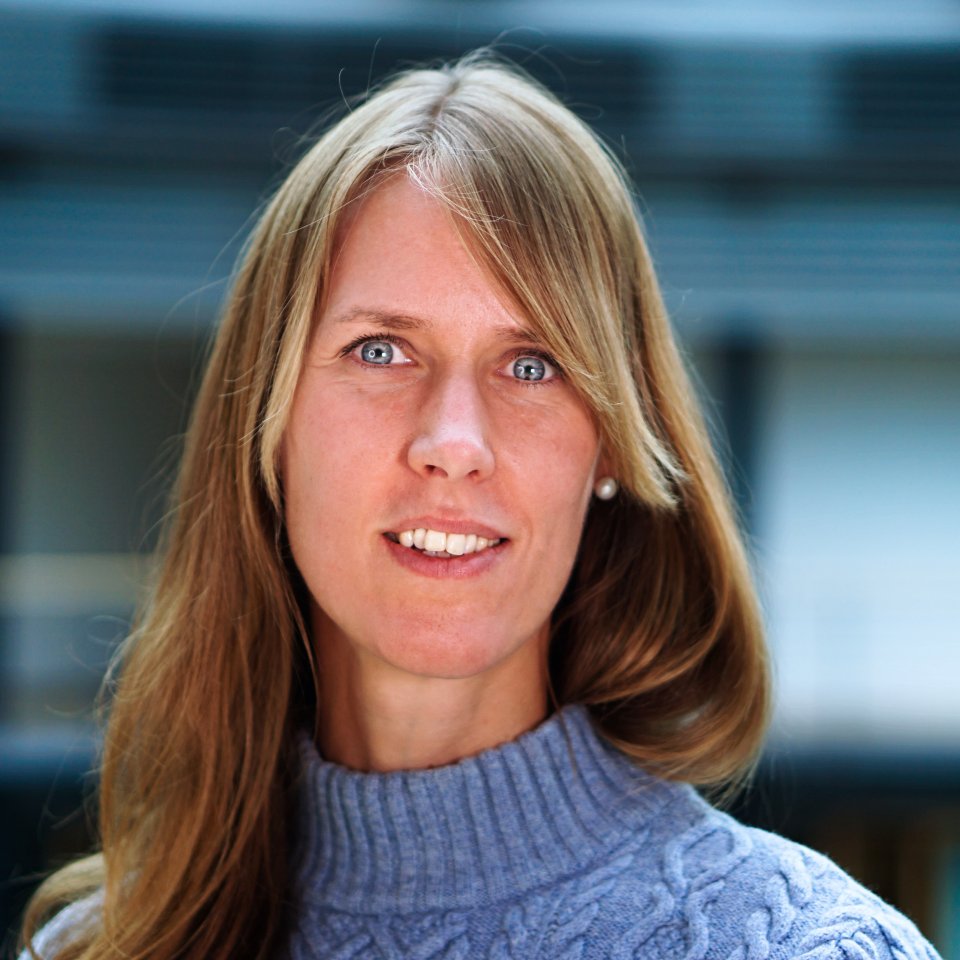

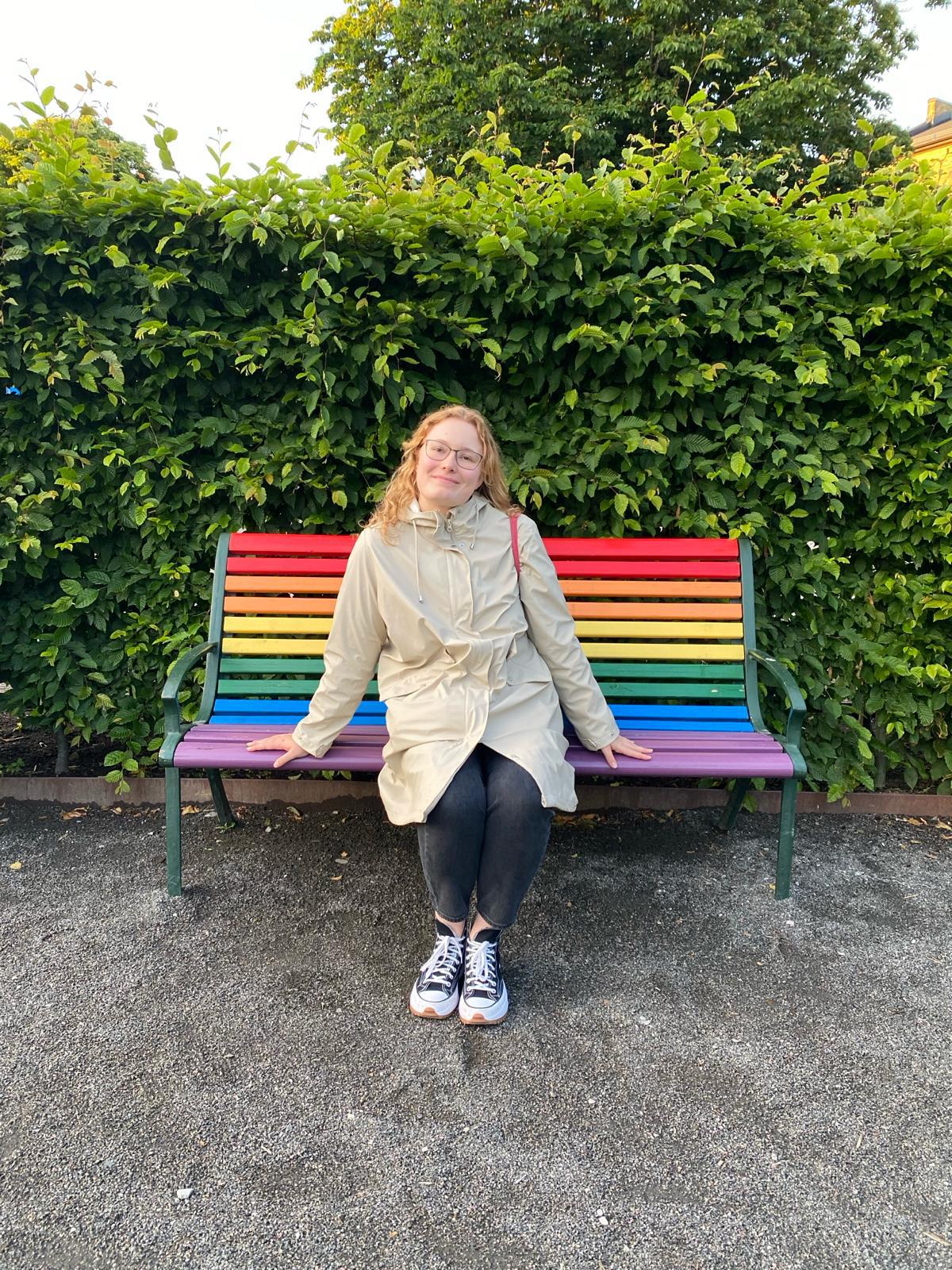 Inga Gostmann
Inga Gostmann 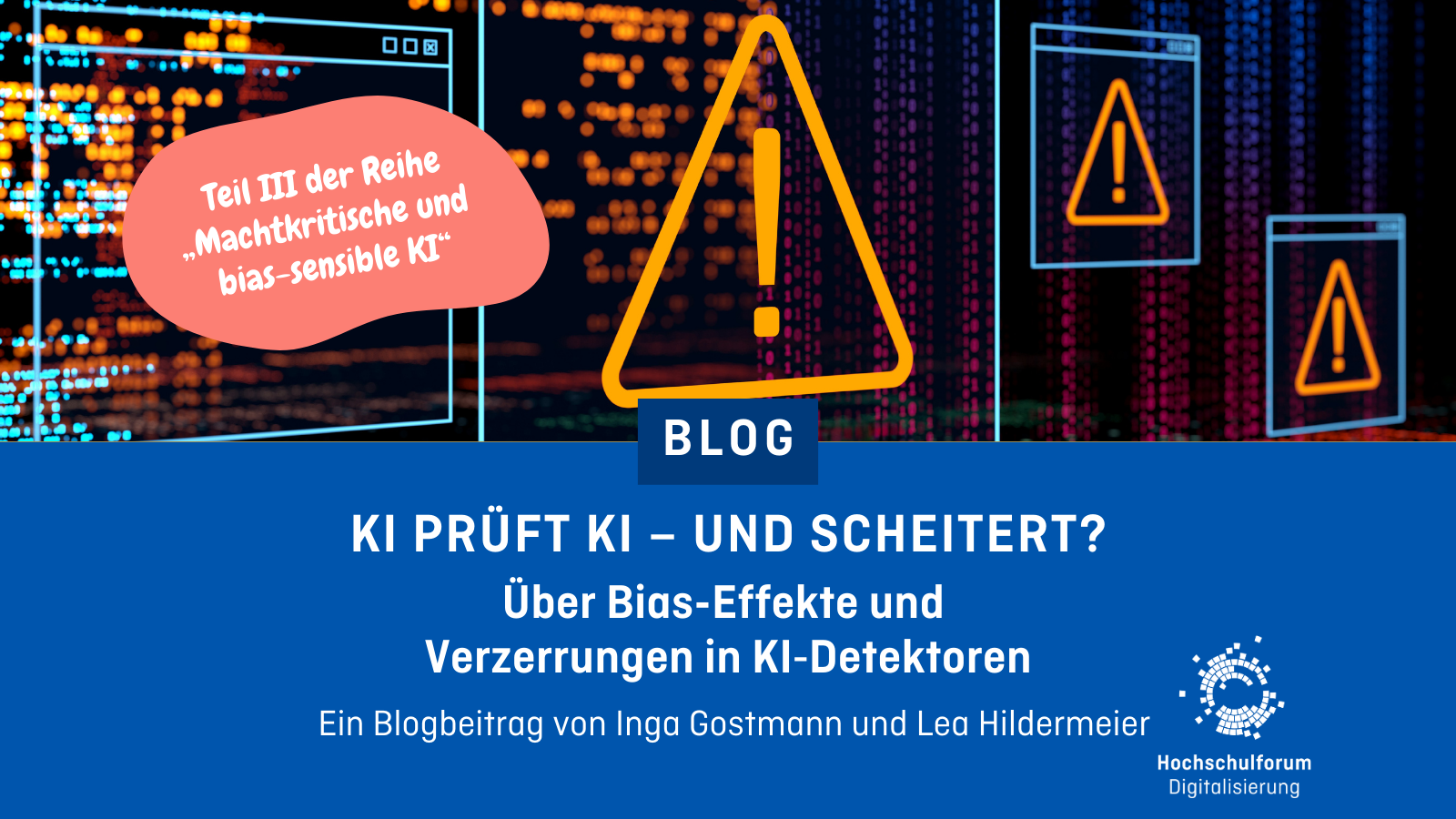
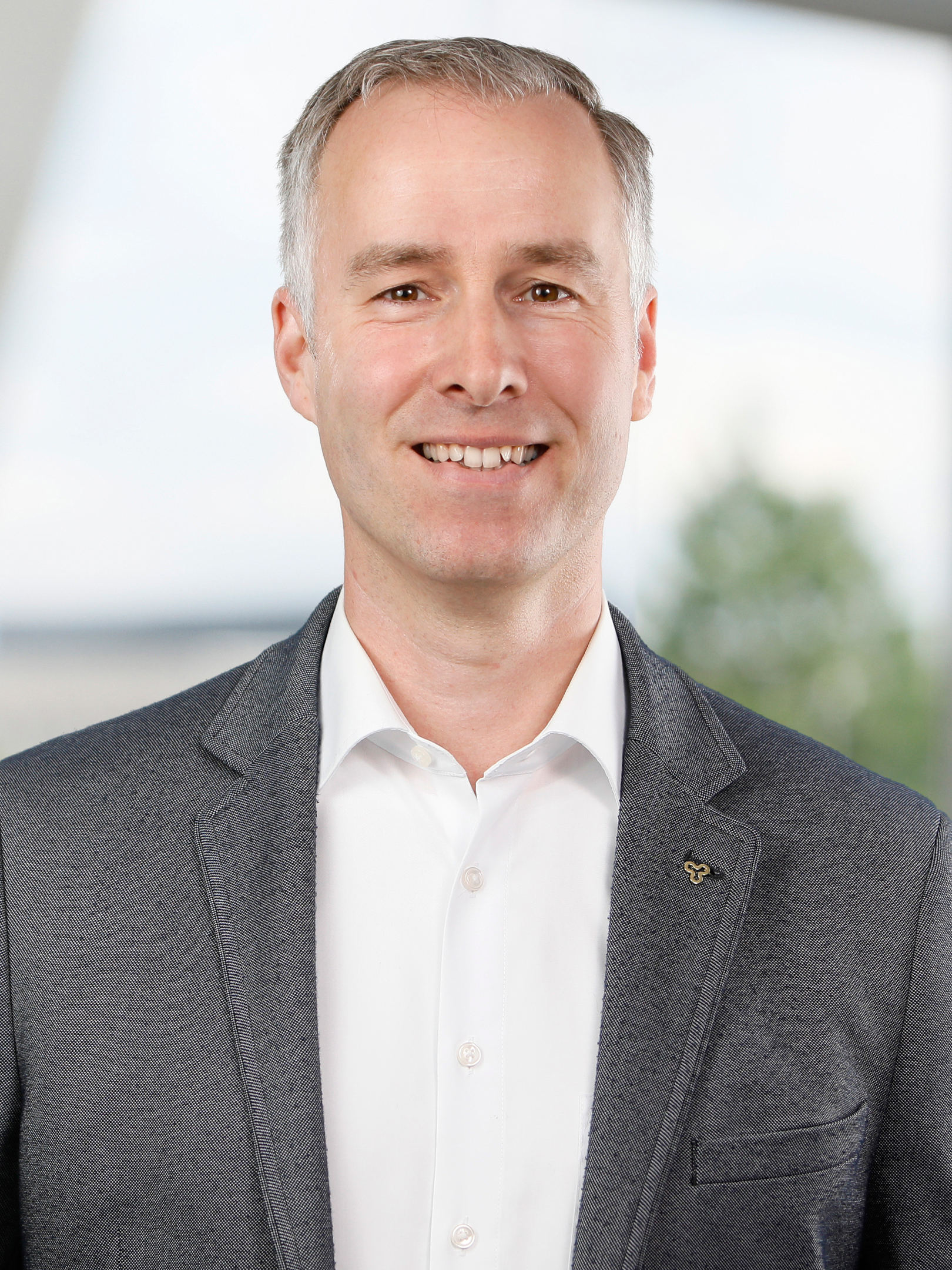 Dr. Björn Fisseler
Dr. Björn Fisseler 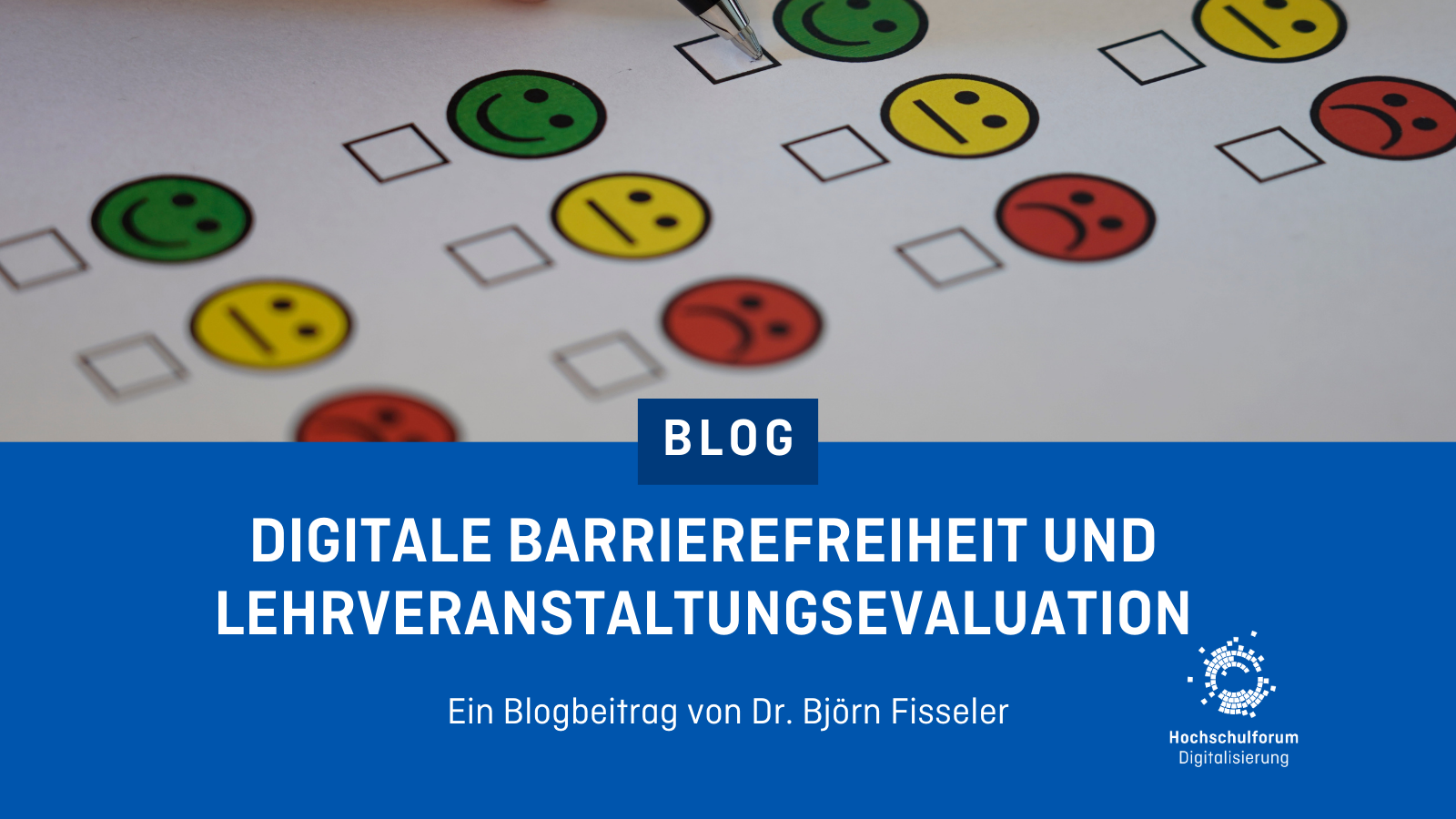
 Vera Lenz-Kesekamp
Vera Lenz-Kesekamp 